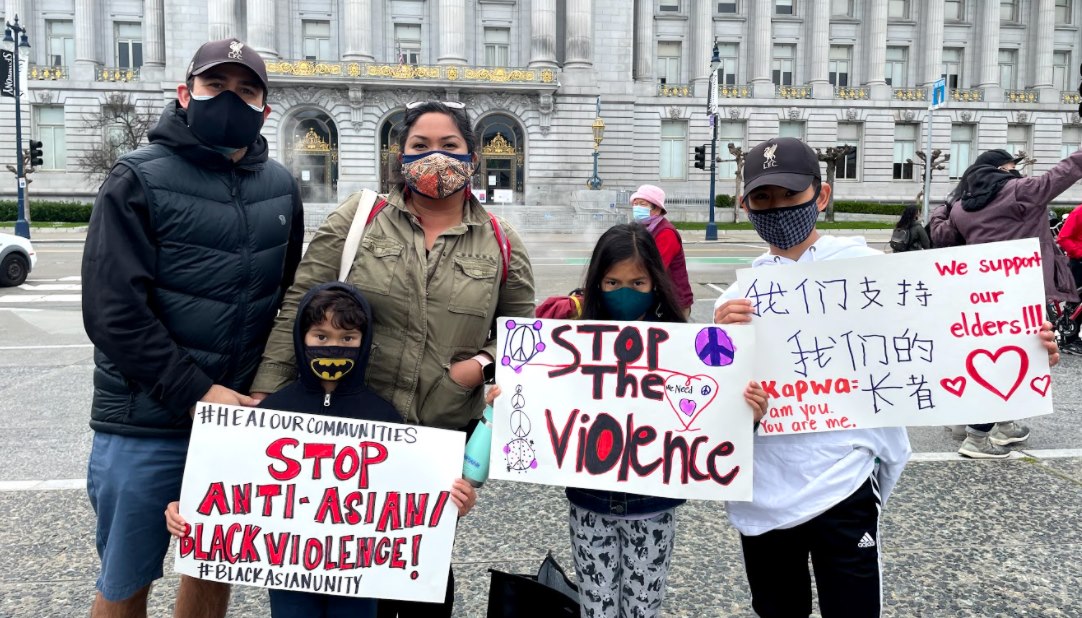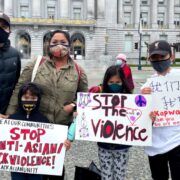
SEVERAL prominent Asian American lawmakers and activists testified before a House Judiciary subcommittee on Thursday, March 18, two days after a horrific Atlanta-area shooting that left eight individuals, including six Asian women, dead and as nearly 3,800 anti-Asian hate incidents have been reported since the beginning of the pandemic.
Thursday’s hearing, which was held before the House Judiciary Subcommittee on the Constitution, Civil Rights and Civil Liberties, marked the first time in 34 years that Congress held an inquiry into anti-Asian discrimination.
The reported incidents from the past year range from hate speech to physical attacks, which some speakers argued were fueled by the rhetoric used by former President Donald Trump and other Republican lawmakers.
The hearing was scheduled before the shooting on Tuesday night, March 16, occurred, taking the lives of eight individuals, which many Asian American and Pacific Islander (AAPI) community members and leaders are calling a racially motivated crime, despite the suspected gunman, 21-year-old Robert Aaron Long, telling authorities otherwise.
“His targets were no accident, and what we know is that this day was coming,” Rep. Judy Chu (D-Calif.), chair of the Congressional Asian Pacific American Caucus, said in her testimony.
Four of the victims are Delaina Ashley Yaun, Paul Andre Michels, Xiaojie Tan and Daoyou Feng, the Cherokee County Sheriff’s Office said. Two employees at Gold Spa, one of the businesses targeted, were identified as Julie Park and Hyun-jeong Park Grant, Korea Times Atlanta said, while the identities of two other women have not been released.
As other speakers echoed after her, Chu went on to blame the previous administration’s use of anti-Asian words (e.g. “Wuhan Virus”) to describe the virus to “shift blame and anger away from [Trump’s] own flawed response to the coronavirus.”
From March 19, 2020 to February 28, 2021, 3,795 firsthand incidents of hate and discrimination were reported by AAPIs across the country with verbal harassment and shunning constituting the top two types of occurrences, according to Stop AAPI Hate, a reporting center that has been tracking since last year.
Of that number, 503 incidents took place in the first two months of 2021 alone. Several high-profile attacks on older Asians — such as 84-year-old Thai immigrant Vicha Ratanapakdee being pushed to death in San Francisco and Noel Quintana, a 61-year-old Filipino man who was slashed in the face and required almost 100 stitches — were referenced in testimonies on Thursday.
“Even though Donald Trump is no longer president, I believe the most recent round of anti-Asian attacks is the aftermath of one year of hateful attacks and four years of ugly comments about immigrants and people of color,” Chu said.
Sen. Tammy Duckworth (D-Illinois) noted the contributions the community has made to the “American story” from the Chinese workers who helped build the transcontinental railroad to now, the AAPIs on the frontlines of the pandemic.
Newly elected members Rep. Young Kim (R-Calif.) and Rep. Michelle Steel (R-Calif.), who are both Korean American, also denounced the attacks, with Steel saying “combating hate is not a partisan issue.”
“No American of any race or ethnic group is responsible for the COVID-19 pandemic. The virus does not discriminate. It affects everyone. We must come together as Americans not just to fight COVID-19, but also to stand against the rise of hate and discrimination against the AAPI community and any other group of Americans,” Kim said.
Lawmakers underscored the need for Congress to pass bills that would go further than condemning hate by making sure the reports are investigated.
Rep. Grace Meng (D-New York), who was present on Thursday, said she and Sen. Mazie Hirono (D-Hawaii) have introduced the COVID-19 Hate Crimes Act that would assign a point person at the Department of Justice to expedite the review of hate crimes amid the pandemic, provide support for state and local law enforcement agencies to respond to these hate crimes, and coordinate with local and federal partners to mitigate racially discriminatory language used to describe the pandemic.
“My bill also builds on President Biden’s presidential memorandum by directing relevant federal agencies to work with community-based organizations to find ways to talk about the virus in a way that is not racist,” Meng said. “I urge my colleagues on this committee for swift consideration of these bills. We cannot turn a blind eye to people living in fear.”
She also responded to Republican Congressman Chip Roy who said he was concerned the hearing would “venture into the policing of rhetoric in a free society.”
“Your president and your party and your colleagues can talk about issues with any other country that you want, but you don’t have to do it by putting a bull’s eyes on the back of Asian Americans across this country, on our grandparents, on our kids,” Meng said. “This hearing was to address the hurt and pain of our community to find solutions and we will not let you take our voice away from us.”
The second hour of the hearing featured witnesses, such as John Yang, executive director of Asian American Advancing Justice | AAJC and Manjusha Kulkarni, executive director of Asian Pacific Policy and Planning Council (A3PCON) and co-founder of Stop AAPI Hate.
“We have long struggled for visibility and equity, and now our communities are faced with this additional physical and mental harm that is arising out of the COVID-19 pandemic,” Yang said.
Stop AAPI Hate — a project started by A3PCON, Chinese for Affirmative Action and San Francisco State University’s Asian American Studies Department — found that 30 to 35% of recent attacks have occurred at businesses and in public spaces, and 60% of incidents come from women.
“Sadly, the 3,800 reported to Stop AAPI Hate represent only a fraction of what has happened in this country,” Kulkarni said, adding, “We are also closely working with local, state, and federal policymakers to address the hate incidents that have occurred and seek to prevent additional incidents from taking place in the future.”
Erika Lee, a professor of history and Asian American studies at the University of Minnesota, brought up the historical nature of the acts against AAPIs.
“As shocking as these incidents are, it is so vital to understand that they are not random acts perpetrated by deranged individuals. They are an expression of our country’s long history of systemic racism targeting Asian Americans and Pacific Islanders,” Lee said.
She cited killings and attacks against Chinese, Filipino, Japanese and South Asians in the late 19th and 20th centuries; Vincent Chin, a Chinese American who was beaten to death by white men in Detroit because they thought he was Japanese and scapegoated him for the economic decline in the auto industry; and the hate crimes against Muslim, Middle Eastern and South Asian Americans following September 11.
“We’ve heard in the past 24 hours many describe anti-Asian discrimination and racial violence as un-American. Unfortunately, it is very American,” Lee said.
Actor Daniel Dae Kim, who has been vocal about the recent attacks, added, “When we are erased from our history books, we are made invisible.” He joined previous speakers’ calls to pass legislation directed to address anti-Asian hate.
“What happens right now and over the course of the coming months will send a message for generations to come as to whether we matter, whether the country we call home chooses to erase us or include us, dismiss us or respect us, invisibilize us or see us, because you may consider a statistically insignificant now, but one more fact that has no alternative is that we are the fastest-growing racial demographic in the country,” Kim said.






